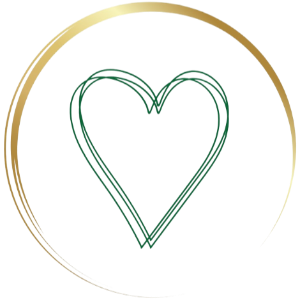
You're Not Broken. You're Human.
Emotional Eating Isn’t a Flaw.
It’s a Survival Mechanism.
You’re already one step closer to freedom
from emotional eating.
Emotional eating isn’t a flaw. It’s your brain
trying to protect you.
And you don’t need to fight your hunger.
You need to understand it.
Start Your Healing Journey
What Does Emotional Eating Really Mean
You may have recognized a few patterns of emotional eating in yourself.
You might be wondering: “Do I really eat emotionally?”
Yes — and it’s more common than you think.
Almost all of us eat emotionally sometimes. But for many women, it quietly becomes the default way to cope — especially under pressure, during perimenopause, or when life just... doesn’t pause.
And here’s the truth:
Emotional eating is a brilliant short-term survival tool.
✨ Your brain is not failing you — it’s protecting you.
✨ Food gives comfort, because it’s meant to.
✨ The challenge is, the relief doesn’t last — but the guilt often does.
This isn’t about willpower. It’s about wiring.
🧠 Stress triggers your brain’s reward system
🧠 Food becomes a coping tool
🧠 The good feeling fades — but the guilt stays
Why Emotional Eating Makes Perfect Sense
- Your brain is wired to seek pleasure and avoid pain
- Food is one of the fastest ways to soothe stress
- It worked once — so your brain stored that memory
Over time, eating became your go-to emotional safety net.
This is not a lack of willpower. It’s a well-worn neural path.
You don’t need to restrict.
You need to retrain with compassion.

“I thought I just lacked self-control. But when I saw how much I was using food to manage my stress, it finally made sense. This workbook helped me stop judging myself and start understanding myself.”
- Anna, 46
“It helped me pause before I reacted. That was new
for me.”
- Tina, 49
“This workbook was like a mirror I wasn’t scared to look into.”
- Laura, 44
💛 You Are Not Alone
Most women don’t talk about it — but emotional eating touches almost all of us.
Especially if you’re:
Always caring for others but forgetting yourself
Hitting energy dips around 3PM and reaching for sugar
Using food to celebrate, escape, or unwind
Feeling like food controls you more than you control it
You are not lazy. You are not weak.
You’re just tired. And your brain is doing its best.

Your Next Step:
A Workbook That Feels Like a Warm Hand
Created by Havu's very own psychologist Outi,
the Emotional Eating Workbook is your personal,
judgment-free space to reflect, reconnect, and start healing.
What’s inside:
✅ Daily emotional check-ins
✅ Tools to break the guilt-shame cycle
✅ Practices to build real coping skills
✅ Space to explore what’s really going on beneath the cravings
“I’ve done a dozen diets. This was the first time I felt seen.”
– Laura, 44
💛 Ready to Begin?
If something stirred in you as you read this — that quiet “yes, this is me” — then you’re ready
for a new kind of support.
Not a diet.
Not a set of rules.
Just the first step toward food freedom — and a better relationship with yourself.
Only If You're Ready...
This isn’t a diet. It’s a guide to coming home to yourself.
Yes, I’m ready to explore the workbook
(Not yet? That’s okay too. This page will be here when you are.
You're already doing more than you think.)
FAQ
Is this for me?
Yes, it's for you. It’s a step-by-step reflection tool and a guide — not a weight loss plan. It’s designed to help you understand and gently transform emotional eating patterns, whether you're just beginning this journey or have been on it for years.
Do I need to be on weight loss medication?
No — although our full program includes support for those using medication, this workbook is a stand-alone tool designed for any woman struggling with emotional eating.
Who created this?
The workbook is written by Outi Pikkuoksa, a licensed psychologist specializing in obesity treatment, eating behavior, and self-compassion. It’s part of the Havu Health mission: to provide real, evidence-based tools that help women create lasting change — with kindness and care.
Can I use this alongside therapy?
Absolutely. This workbook can be a powerful complement to therapy. It helps you bring deeper insight, language, and self-reflection into your sessions. Many therapists encourage clients to use it as a structured way to explore emotional patterns between appointments — and it can also offer support if you're not currently in therapy but want a safe place to start understanding yourself better.
Start With The Workbook